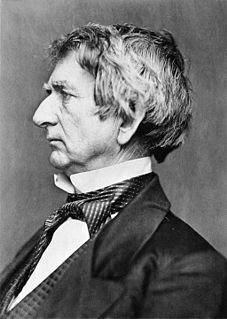A Quote by William H. Seward
I have learned, by some experience, that virtue and patriotism, vice and selfishness, are found in all parties, and that they differ less in their motives than in the policies they pursue.
Related Quotes
Both of our political parties, at least the honest portion of them, agree conscientiously in the same object: the public good; but they differ essentially in what they deem the means of promoting that good. One side believes it best done by one composition of the governing powers, the other by a different one. One fears most the ignorance of the people; the other the selfishness of rulers independent of them. Which is right, time and experience will prove.
That public virtue which among the ancients was denominated patriotism, is derived from a strong sense of our own interest in the preservation and prosperity of the free government of which we are members. Such a sentiment, which had rendered the legions of the republic almost invincible, could make but a very feeble impression on the mercenary servants of a despotic prince; and it became necessary to supply that defect by other motives, of a different, but not less forcible nature; honour and religion.
On the whole, men are more good than bad; that, however, isn't the real point. But they are more or less ignorant, and it is this that we call vice or virtue; the most incorrigible vice being that of an ignorance that fancies it knows everything and therefore claims for itself the right to kill. The soul of the murderer is blind; and there can be no true goodness nor true love without the utmost clear-sightedness.
One shouldn't pursue the wrong policies just because one is afraid of not being reelected. Those who intend to govern have to take responsibility for their countries and for Europe as a whole. This means, if need be, that they have to pursue the right policies, even if many voters think they are the wrong ones.
The argument that the two parties should represent opposed ideals and policies, one, perhaps, of the Right and the other of the Left, is a foolish idea acceptable only to doctrinaire and academic thinkers. Instead, the two parties should be almost identical, so that the American people can throw the rascals out at any election without leading to any profound or extensive shifts in policy. Then it should be possible to replace it, every four years if necessary, by the other party, which will be none of these things but will still pursue, with new vigor, approximately the same basic policies.











































